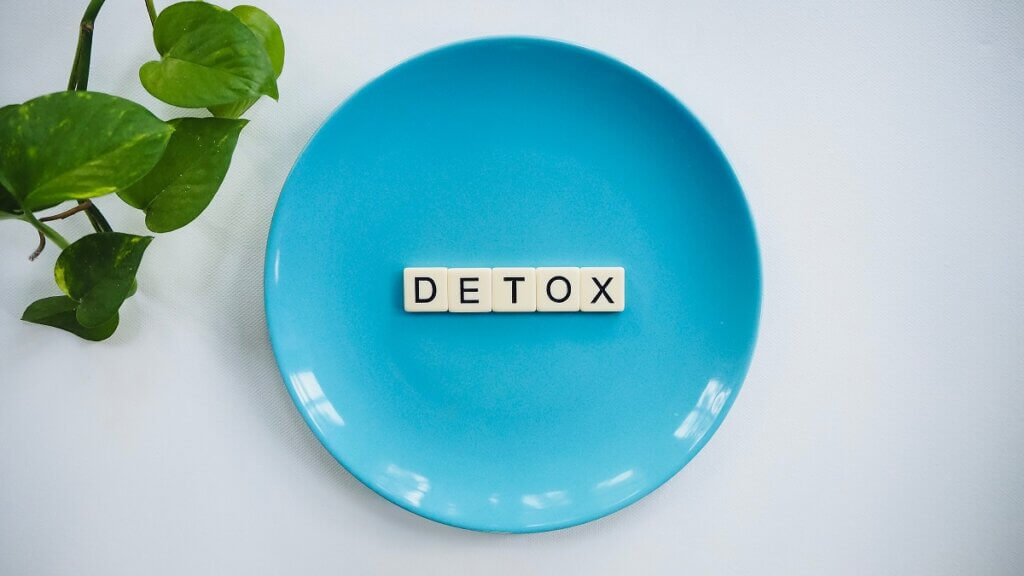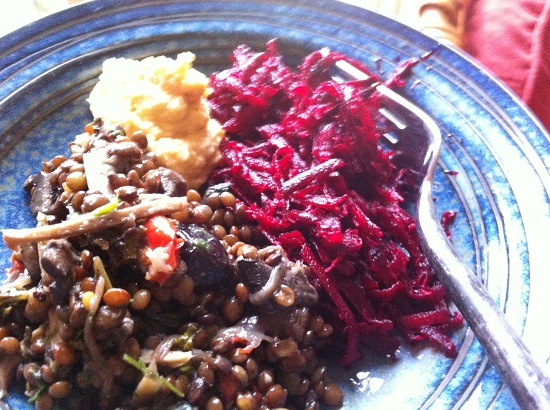Many people try fasting to help them lose weight and benefit their health. There are numerous advantages that intermittent fasting can help with besides weight loss, including boosting your brain power and decreasing the risk of diseases.
Most people adopt the 16:8 rule of fasting. It means that you only eat in an eight-hour window, and fast for the other sixteen hours. To suppress your appetite you’re allowed water, black coffee, or sparkling water during the fasting period.

Can fasting help alleviate allergies?
People probably don’t know that fasting can also affect your allergies. If you have allergies, you might consider taking up intermittent fasting to help deal with them. Taking antihistamines often leaves you feeling groggy and disoriented (even with non-drowsy medications). Long term use of anti-histamines could also have consequences. If you’re not a fan of medicine, you might consider fasting to help.
The detox effect of fasting supports and strengthens your immune system. With a stronger immune system, your body can fight off allergies, so your body can react more efficiently.
How does fasting help with allergies?
One of the first things you’ll notice if you have allergies when you fast is how quickly your symptoms are suppressed. In a study done on animals, scientists gave the animals an allergy and then forced some to fast while others stayed on their normal food schedule.
The allergies decreased dramatically in those who fasted for 24 hours. Those that were normally fed with no reduction in their allergy symptoms.
Since fasting has this benefit to your immune system, it aids in minimising the effect of allergies on your body. It reduces inflammation, which includes the sinuses, and reduces hypersensitivity.

Can fasting help with seasonal allergies?
Seasonal allergies like your body’s reaction to dust, hair, and pollen can be managed with an intermittent fasting program. Fasting, even just for a 24-hour period, can help to combat allergens by boosting the body’s defenses.
For people who suffer from asthma, there is evidence in some case studies that demonstrates fasting can help with those breathing problems, even improving lung function. So, it’s worth looking into if your allergies cause more severe health issues like asthma.
Can fasting help with food allergies?
If you lead an unhealthy diet or incorporate a lot of processed foods, sugars, unhealthy fats, and grease in your food, it increases your body’s reaction to allergies. So, if you’re living an unhealthy and un-nutritious lifestyle, you’re more likely to suffer from reactions to allergens.
Food allergies are similar to seasonal allergies. Your body’s response to certain ingredients causes problems like swelling of the nasal cavity and can cause problems like hives or a rash, as well as other health issues such as sleeping.
When you intermittently fast, your body’s immune system has time to repair itself, as well as detoxify and degrade, allowing fat deposits to be broken down. Digestion is improved since your stomach has time to process without constant food needing breakdown.
So, when you fast, you’re allowing your body to heal and get better, making it stronger against any type of allergen, including food. Food intolerances can be significantly lowered, and possibly even eliminated.
How long do you fast for allergy relief?
Now if you’re curious about taking on some intermittent fasting, you can do so quite easily. Consider starting slowly, fasting just one day a week, or even just once a day a month. To help you get started on your first fast, you should utilise the online fasting tracker by Zero, which is free and easy to use.
You can measure your results by monitoring your digestive and heart health. It is recommended that you speak to your doctor or physician first before you begin, especially if you are dealing with any health issues or pre-existing conditions.
Symptoms may take some time to improve, so you may not recognise the changes immediately. However, there are noticeable improvements that can happen in as soon as one week. But, it also depends on how long to plan fast. If you’re only doing one 24-hour period a month, it may take more time than doing a 16:8 for a few days per week.
The stages during fasting
If you plan a lengthier fast, you should make yourself aware of the stages that come with a fast. During the first stage, your blood sugar level drops and the liver converts glucose to release into your bloodstream. Most people experience some weakness, dizziness, and even nausea. Your hunger is also intense during the first stage.
In stage two, the fats in your body start to break down. Ketones are formed by the incomplete oxidation of fats. When this occurs, it helps suppress your appetite. Until your body goes into ketosis, most people feel very tired and have low energy.
What do you do after a fast is completed?
It’s important to note that once you exit a fast, you don’t want to stuff yourself full of food. You have to ease yourself into eating food again, so start with something healthy and in small portions. Shocking your body after a prolonged period of fasting, even just a few days, can bring havoc to your digestive system if you’re not careful.
The bucket theory
One way to understand why this helps is to consider the bucket. It’s hard to carry when it’s full of water; our bodies are the same. We can become affected by inflammation, seasonal allergies, stress, fatigue, eating processed foods, and it all builds up. Too many inflammatory or allergenic external factors can cause the body’s internal bucket to fill up and that then causes flares and worsening of symptoms.
Think about the foods you eat between fasting
We’ve talked about reintroducing foods again slowly, but what kinds of food should you eat? Stick to whole foods, fruit, vegetables and healthy grains. Avoid fast food, processed food and high salt and sugar content meals. Processed sugar is know to increase inflammation, and whilst you might crave comfort food, try to get organised and stock up on healthy snacks and nourishing ingredients so you can easily put a meal together. Get the slow cooker out so you can have an easy meal waiting, you might feel tired after fasting so this avoids you reaching for that easy microwave meal!
Take your fast to the next level
Many religions incorporate fasting in their growth and spiritual development. Alongside the fasting they will pray and meditate. If that’s something you are drawn to, think about also adding some walks in nature, yoga, short guided meditations while you fast. All these things also help to reduce inflammation in the body, so find out what works for you. Even really simple breathing exercises help to centre and focus the mind and might help you heal even faster.
Always seek advice from your doctor
Again, it’s always best to consult with your doctor before doing a long-term fast. There is also a mindset of control you must put yourself in to achieve your fasting goal. When you make fasting a habit, your body has the opportunity to heal more quickly, reducing inflammation and your allergy symptoms significantly. And it doesn’t matter if you do a short-term or long-term fast; the benefits will be noticeable!
Have you tried fasting for your allergies? Did it make a difference? What did you notice from fasting and will you continue to fast?
Photo: Photo from Pexels by Vegan Liftz.












I have itchy inflamed skin with bumps all over. I am juice fasting until it is gone and applying aloe vera and apple cider vinegar to skin and drinking these two also. I will fast 30 days or more if I have to, which I have been doing for 47 years. Hope it works. Never had anything like this before. Allergist gave me antihistamine pills and ointment. Afraid of its side effects. I will use though as a last resort if fasting doesn’t work. Been fasting now for a few days, seems little better.
I think fasting can provoke a response like that as it cleanses the body, though I’m not an expert. I’ve seen this happen myself when doing elimination diets and also a Chinese herbal cleanse. It’s like a purging, as long as you can manage the irritation, with ice packs etc. Good luck with your quest to find the triggers for your skin. Cutting out processed foods has helped me greatly too.
Thank you.
Beneficial info.
My Pleasure – glad it could help
Very useful info.Thank you very much
My pleasure! Glad you enjoyed it